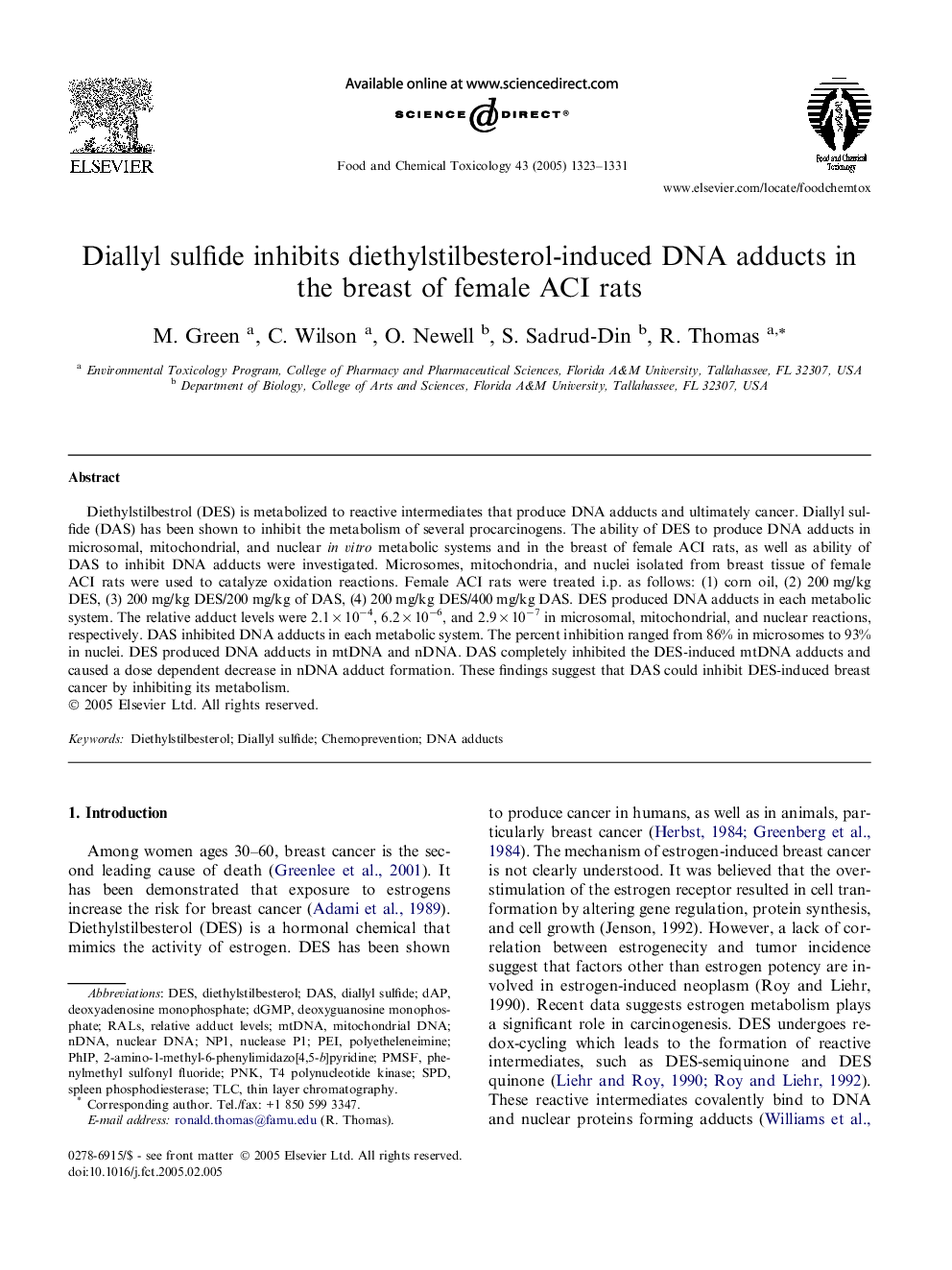| Article ID | Journal | Published Year | Pages | File Type |
|---|---|---|---|---|
| 9031144 | Food and Chemical Toxicology | 2005 | 9 Pages |
Abstract
Diethylstilbestrol (DES) is metabolized to reactive intermediates that produce DNA adducts and ultimately cancer. Diallyl sulfide (DAS) has been shown to inhibit the metabolism of several procarcinogens. The ability of DES to produce DNA adducts in microsomal, mitochondrial, and nuclear in vitro metabolic systems and in the breast of female ACI rats, as well as ability of DAS to inhibit DNA adducts were investigated. Microsomes, mitochondria, and nuclei isolated from breast tissue of female ACI rats were used to catalyze oxidation reactions. Female ACI rats were treated i.p. as follows: (1) corn oil, (2) 200Â mg/kg DES, (3) 200Â mg/kg DES/200Â mg/kg of DAS, (4) 200Â mg/kg DES/400Â mg/kg DAS. DES produced DNA adducts in each metabolic system. The relative adduct levels were 2.1Â ÃÂ 10â4, 6.2Â ÃÂ 10â6, and 2.9Â ÃÂ 10â7 in microsomal, mitochondrial, and nuclear reactions, respectively. DAS inhibited DNA adducts in each metabolic system. The percent inhibition ranged from 86% in microsomes to 93% in nuclei. DES produced DNA adducts in mtDNA and nDNA. DAS completely inhibited the DES-induced mtDNA adducts and caused a dose dependent decrease in nDNA adduct formation. These findings suggest that DAS could inhibit DES-induced breast cancer by inhibiting its metabolism.
Keywords
Related Topics
Life Sciences
Agricultural and Biological Sciences
Food Science
Authors
M. Green, C. Wilson, O. Newell, S. Sadrud-Din, R. Thomas,
